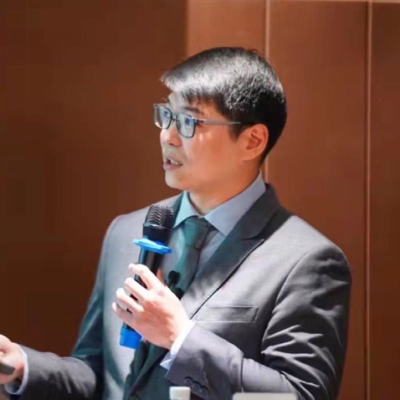Book Review (Summer 2008)

Jonathan D. Spence. The Chan’s Great Continent: China in Western Minds. New York: W. W. Norton. 1998. Pp. xviii, 279. $27.50.
Jonathan Spence, the Sterling Professor of History at Yale University, is undoubtedly one of the most eminent storytellers of our era. He is concerned with not only the history of Late Imperial and Modern China, but also the relationship between East and West. Spence delivered the DeVane lectures at Yale University, a series of twelve speeches to popular audiences, in the spring of 1996. This book is an expanded and improved version based on this lecture. In this eye-opening book Spence attempts to show his readers how westerners developed their impressions of China over the past eight hundred years. The Chan’s Great Continent: China in Western Minds unfolds in twelve chapters and investigates a huge works of forty-eight “sightings” of China, including famous travelers, writers, playwrights, missionaries, diplomats, journalists, and philosophers. Some of them had been to China and took down some first-hand material. However, others encountered China only in their imaginations.
In this book, Spence has argued that firstly Western travelers, such as Marco Polo, regarded China as an advanced civilization. Later, after the Enlightenment, Western observers and writers about China tended to view China as corrupt, archaic and menacing. In the late nineteenth century, some Chinese migrants who came to the West in Western popular culture were depicted as a “jabbering idiot,” or “mental vacuum.” But other Chinese image was cunning, cruel, and evil, such as the character of Fu-Manchu. The polemical images may be seen as the ambivalence of Westerner’s attitude to Chinese migrants.
In the beginning of the twentieth century, Edgar Snow’s positive coverage of the Chinese Communist Party in Yan’an may reflectthat the Marxism was the hope of China. The Marxian analysis of Karl Wittfogel’s The Oriental Despotism, A Comparative Study of Total Power attempted to provide a great model to explain the historical development of China, like his predecessors Leibniz, Montesquieu, and Voltaire.
In this book Spence chose forty-eight representative figures culled from a number over one hundred similar ones. However, I am really interested in those omitted figures. They could be also quite important in this analysis. For example, when Spence mentioned the character of Fu-Manchu as a representative of nocuous and negative Chinese image, it could be a dread omission that he did not mention the other coexistent character in Western popular literature, Charlie Chan. He is a character created by Earl Derr Biggers in 1925. Charlie Chan is wise and courageous detective and could be a representative of a positive Chinese image different to Fu-Manchu.[1] Of course, Spence may omit this case because this is a compact book. However, if Spence put Charlie Chan in his analysis, the result could be quite different.
Furthermore, Spence has demonstrated how Westerner’s attitudes towards China in this book. However, it is unfortunate that it lacks the description that how Western perceptions of China changes Westerner’s viewpoints about the world around them. What is the changes of the West after encountering China?
In the end of this book, Spence cited a passage of Calvino’s Invisible Cities. In this passage, Kublai Khan asks Marco Polo: “When you return to the West, will he repeat to your people the same tales you tell me?” Marco Polo tells the Khan:
I speak and speak, but the listener retains only the words he is expecting…It is not the voice that commands the story: it is the ear.
This means that whatever Chinese speak the Westerners always hear what they want and what they are expecting. Because of this story, Spence argues that China does not need to fasten itself into Western minds. However, a further and practical question raise in my mind is how China need not attach itself to Western minds. After the Deng’s reform, China has more and more inclined towards a capitalist society and integrated itself into a globalization process. Western political and economic superiority cannot be ignored by China. Chinese indeed feel anxious in the age of globalization because they have to relocate their place and identity in the global society.[2] This question may be a little digressing and beyond the theme of Spence’s book. However, I think that this could be a question deserving serious discussions.
Taken together, despite such incompleteness, we cannot deny the great value and achievement of The Chan’s Great Continent. In this compact book Spence has shown his readers a broad historical horizon and his erudition. This book will not be an end of a lecture, but a beginning of further exploration of the interaction between East and West.
[1] Zhiqin Jiang 姜智芹, Fumanzhou yu chenchali 傅滿洲與陳查理 [Fu-Manchu and Charlie Chan]. Nanjing: Nanjing University Press, 2007.
[2] Xudong Zhang 張旭東, Quanqiuhua shidai de wenhua rentong 全球化時代的文化認同 [Cultural Identity in the Age of Globalization]. Beijing: Peking University Press, 2005.